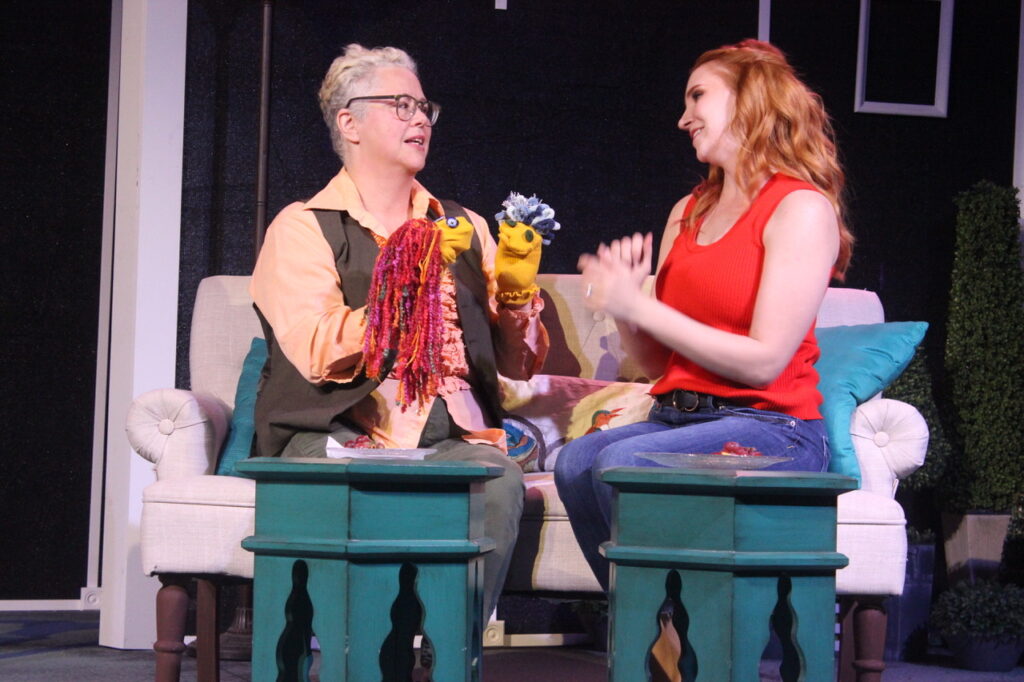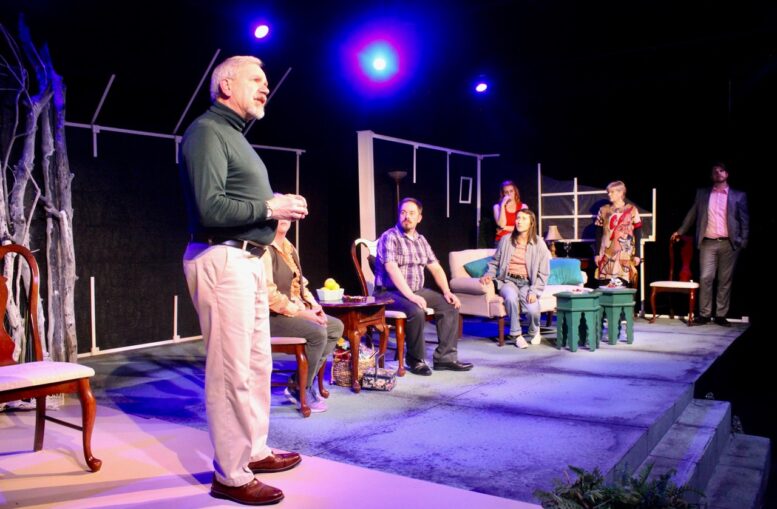By DAVID DUPONT
BG Independent News
“Life Sucks” is not the most propitious title for a play. Even some characters in “Life Sucks” object to it.
Life is hard at times, challenging, but it doesn’t suck ,proclaims Pickles. “Seriously, it’s not that bad.”
Like the other six characters, Pickles played by Diana DePasquale occasionally addresses the audience.
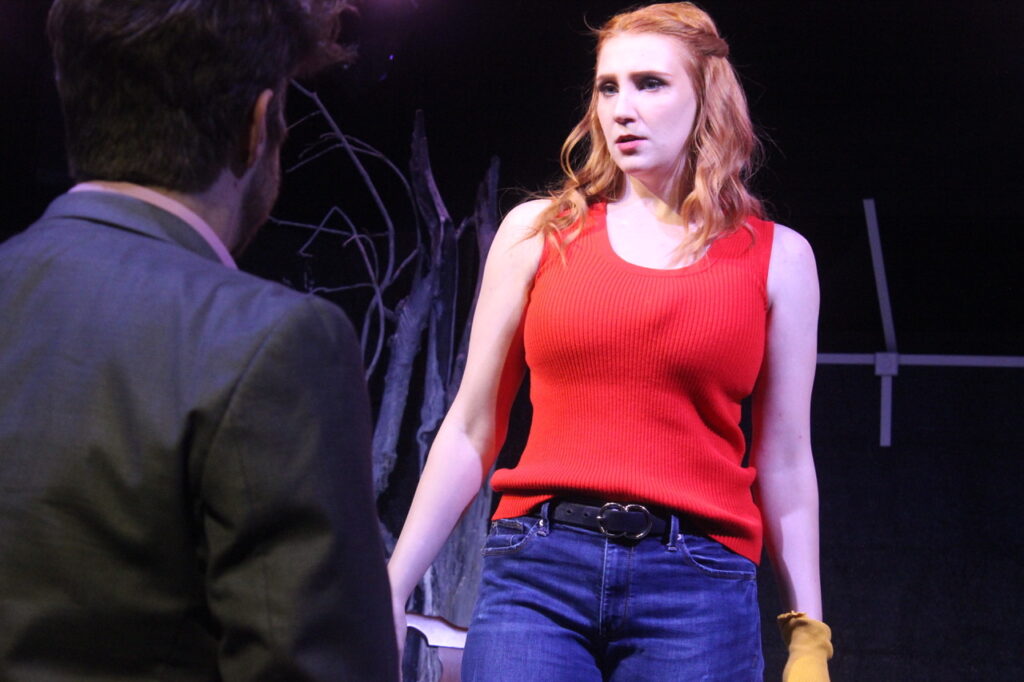
They may even poll the audience. Ella, played by Mackenzie Baumhower, asks: Would you sleep with me? Putting aside all the practical, ethical, and other constraints, that is. Furtive glances, a few hands go up.
Directed by Sara Lipinski Chambers, the Black Swamp Players’ production of Aaron Posner’s comic contemporary take on Anton Chekov’s “Uncle Vanya” is on stage this weekend and next with shows Friday, May 10, Saturday, May 11, May 17, and May 18 at 8 p.m. with Sunday matinees May 12 and 19 at 3 p.m. at the Players’ home theater at 115 E. Oak St., downtown Bowling Green. Click for tickets.
This is an extended family including friends and hangers on. As the youngest Sonia (Story Moosa) says of family that “everyone is hard-wired to get everyone upset.”
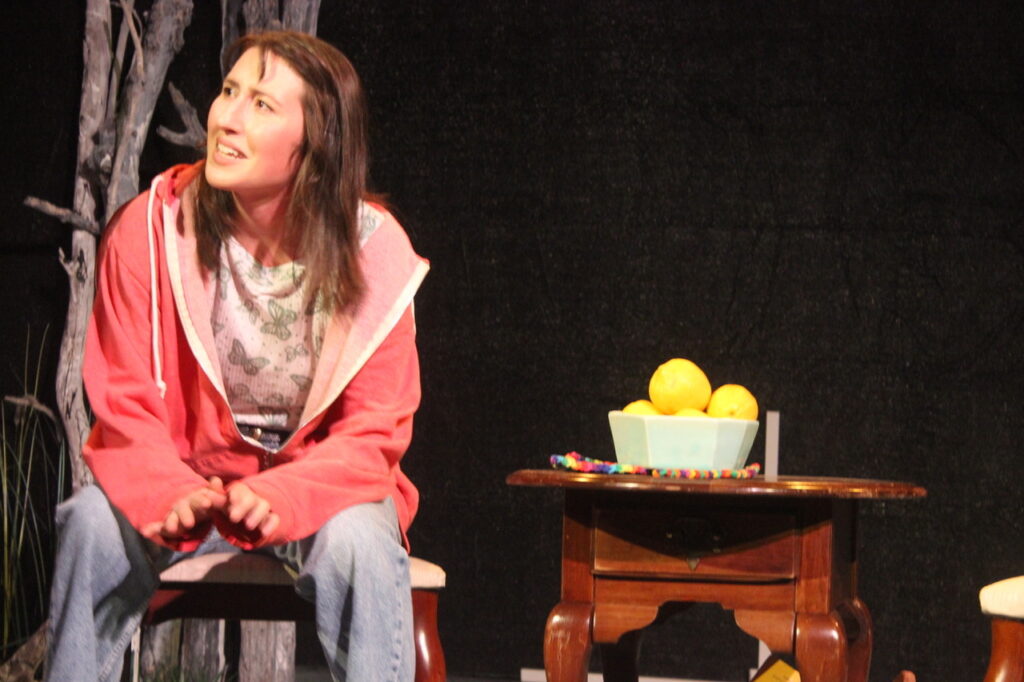
And this crew of over-thinking, self-oblivious folks certainly know the buttons to push. They are far more aware of the emotional frailties other than their own which are many.
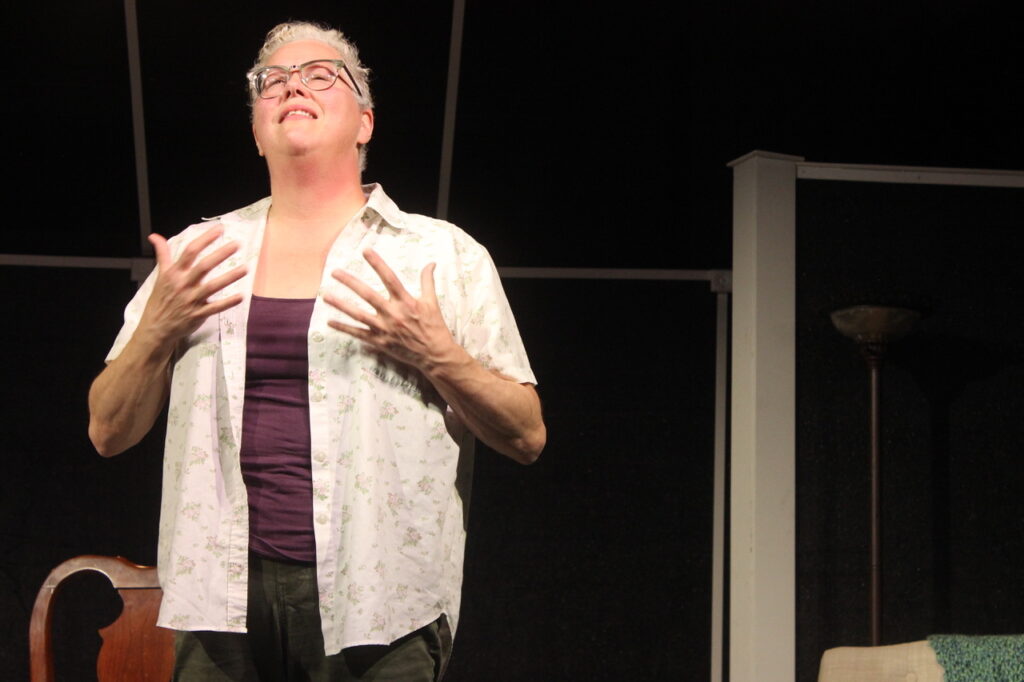
They are all together on the occasion of one of the periodic visits to the family’s country estate by the elder professor (Jim Dachik) and Ella, his much younger, third wife. This time their stay is extended. They have ulterior motives. The estate was the property of his late wife’s family.
Sonia, his daughter from his first marriage, cares for the home with her mother’s brother Vanya (Andrew Packard), a sour, disgruntled middle-aged man frustrated by his own lack of accomplishments. . At one point Vanya says he wishes to go back to a time before humans were self-aware, and they would just act. “I fantasize about not being able to fantasize.” That conundrum captures his state of mind.
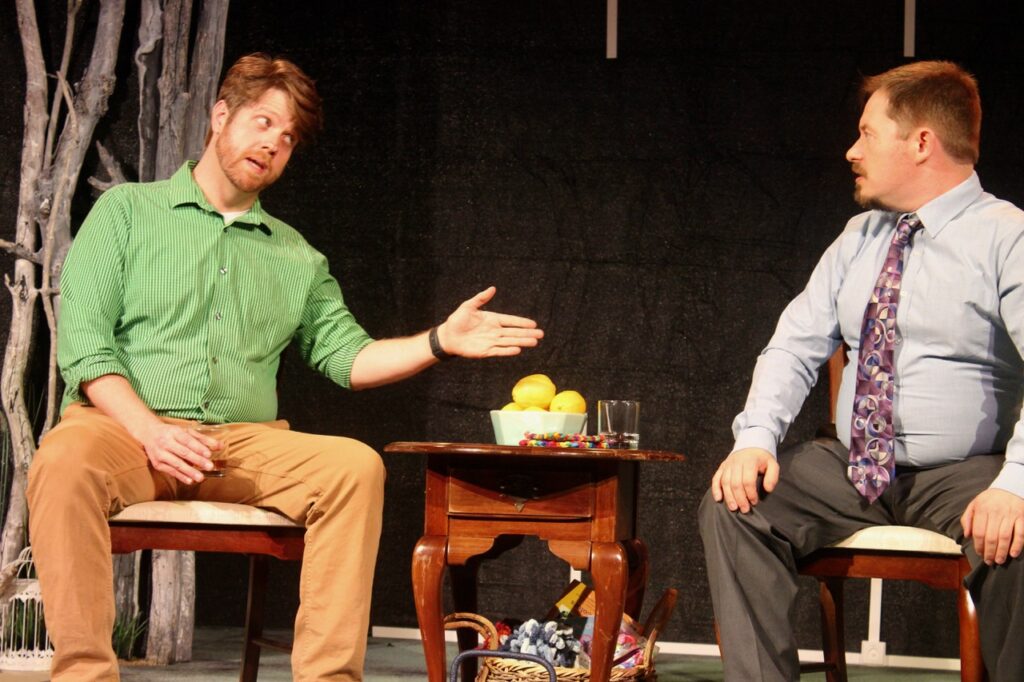
Though thoroughly unlikable, Vanya maintains a long-standing relationship with the local physician Dr. Aster (Kevin Caudill). The good doctor complains that all he does is work, and this keeps him from fulfilling some inchoate dreams. Not only does he practice medicine, he also is involved in helping to protect the local environment. (Lest one think this is a contemporary touch, note that Chekov’s character was also an early environmentalist.) And he works out, noting the seeming pointlessness of a treadmill where one runs but goes nowhere.
The household also includes Babs (Libby Dachik), an old friend of Sonia’s mother, a ceramics artist, and like most of the other characters, a heavy drinker. Then there’s Pickles, who does odd crafts and works with children, and seems brilliantly dim. The men mock her naivete.
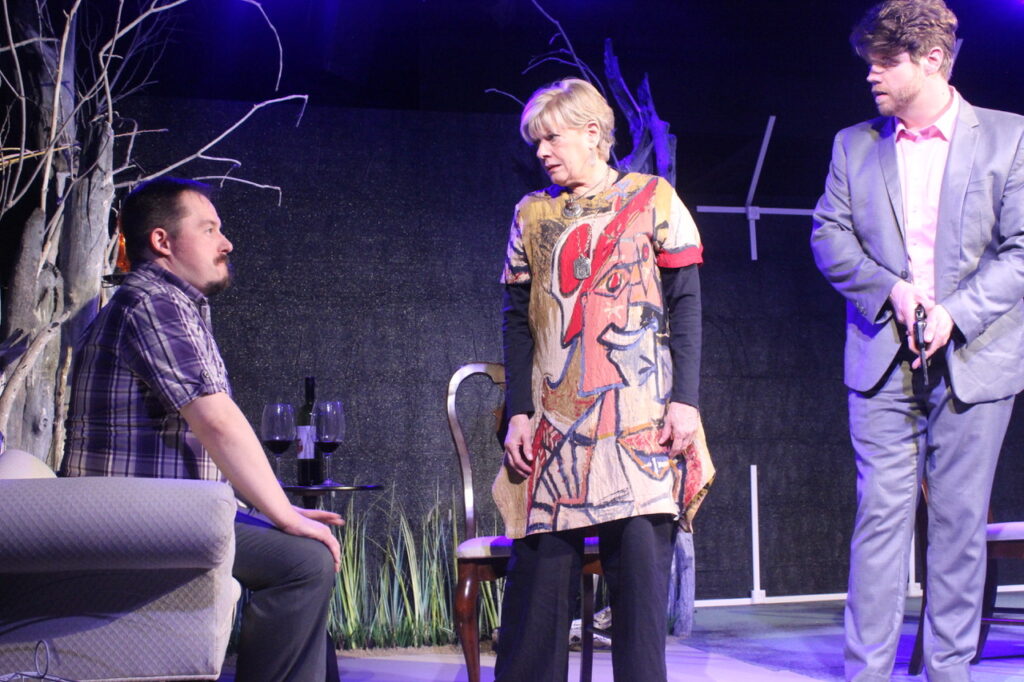
Vanya once idolized the professor, but now sees him as an academic charlatan. His work is nothing that will ever help mankind. His scholarship is in semiotics, an academic intense study of language and symbols. Not as, Pickles presumes, the study of trucks.
The professor loves to lord his learning over the others. He has grown more pompous as he has aged, Babs tells him.
He is obsessed with his failing health. His marriage is troubled. Ella seems to have little interest in him –or the others. Ah, but she fascinates everyone, especially Aster and Vanya, who both proclaimed their desire for her.
What attracts you to me, she asks Aster, after brutally and comically rebuffing him. “Your contradictions,” he tells her. She promptly kisses him. Maybe he’s right.
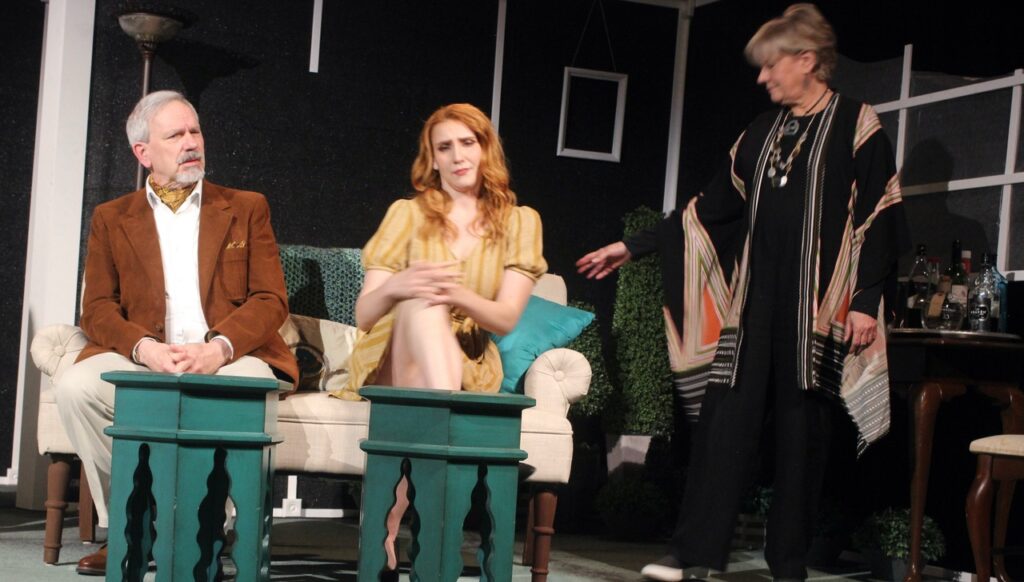
Sexual frustration is rife. Pickles remains faithful to Iris, the lover who left her 16 years ago. Sonia desires Aster, who is oblivious to her. Babs, who has her own past with the much younger doctor, tells her such passion never lives up to expectations.
It is, Ella said, “an endless relationship gavotte.”
These characters beg to be caricatures,and the actors refuse to let them, bringing out nuances the characters believe are hidden. For all their foibles, pessimism, and bitterness, they prove to be amusing company for the two hours we share with them.

That’s a tribute to the strong acting. At one point, Libby Dachik as Babs addresses the audience, and for an instant I thought the actor had stepped out of the role and was just expressing her feelings. Everyone in the cast deftly handles their shifting relationships with their fellow characters and the audience. They go from utter withering sarcasm to inviting the audience to comment on what they see.
They have a way of making the audience feel at home. How bad can life suck when we get to enjoy theater so good, so close to home?
